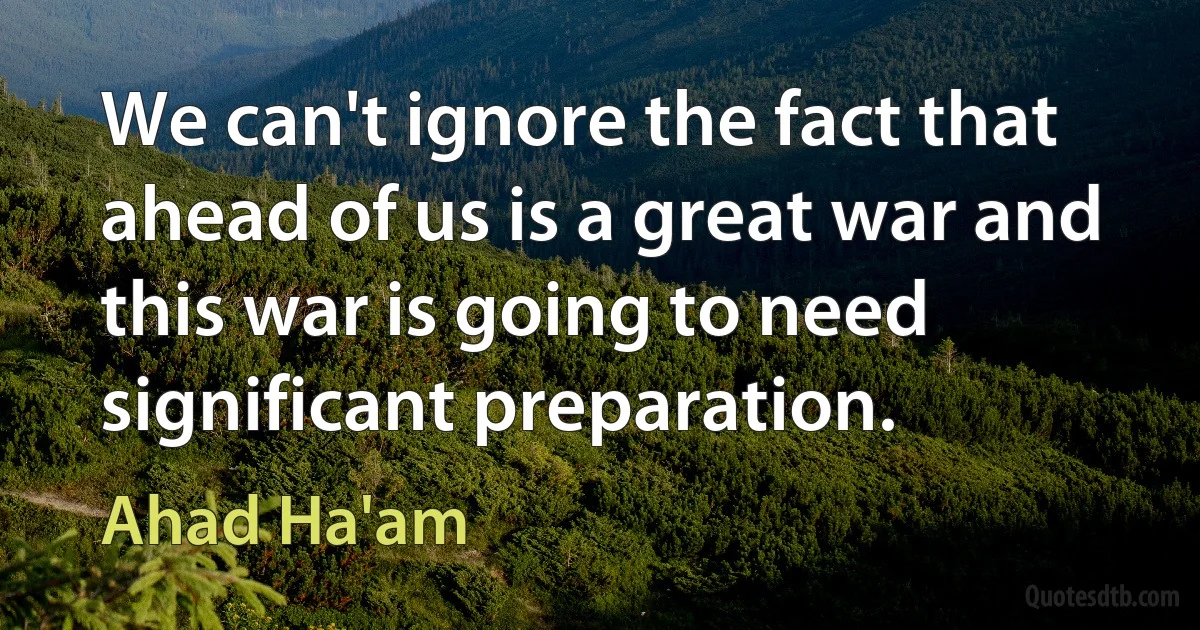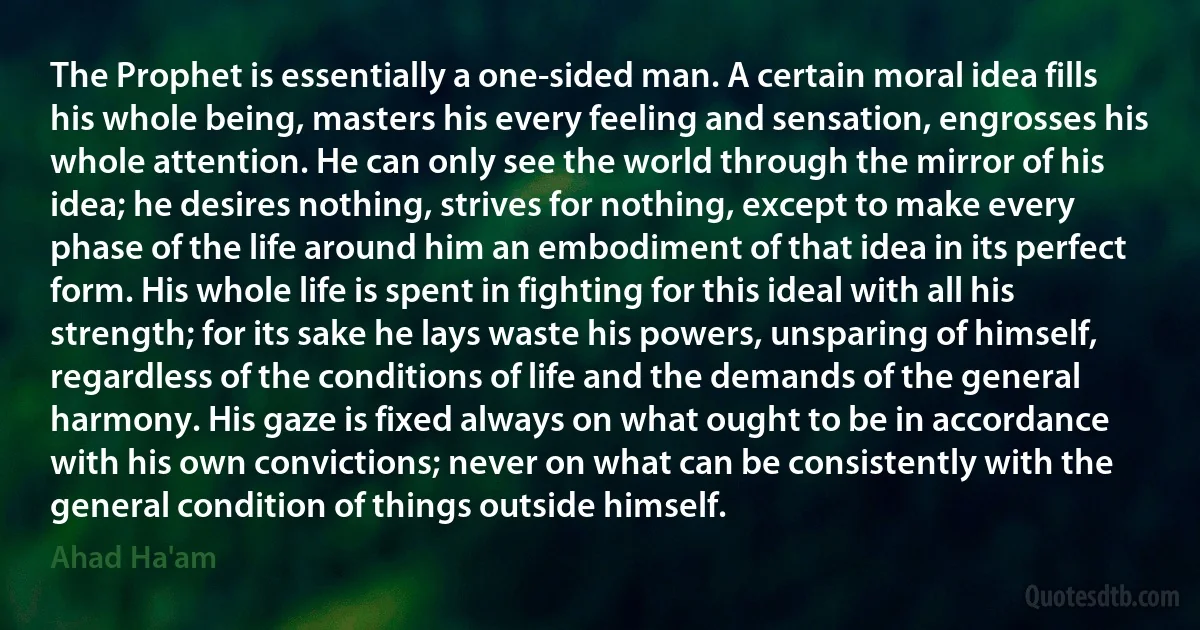Ahad Ha'am quotes
The Idea of the Priest is not, therefore, a primal force; it is an accidental complex of various forces, among which there is no essential connection. Their temporary union is due simply to the fact that they have happened to come into conflict in actual life, and have been compelled to compromise and join hands. The living, absolute Idea, which strove to make itself all-powerful, and changed the external form of life while remaining itself unchanged-this elemental Idea has died and passed away together with its Prophets. Nothing remains but its effects-the superficial impress that it has been able to leave on the complex form of life. It is this form of life, already outworn, that the Priests strive to perpetuate, for the sake of the Prophetic impress that it bears.

Ahad Ha'am
These Prophets of Righteousness ... believed in the victory of absolute Righteousness, yet the fact that they turn their gaze time after time to "the end of days "proves that they knew-as by a whisper from the "spirit of holiness" within them-how great and how arduous was the work that mankind must do before that consummation could be reached. They knew, also, that such work as this could not be done by scattered individuals, approaching it sporadically, each man for himself, at different times and in different places; but that it needed a whole community, which should be continuously, throughout all generations, the standard-bearer of the force of Righteousness against all the other forces that rule the world: which should assume of its own freewill the yoke of eternal obedience to the absolute dominion of a single Idea, and for the sake of that Idea should wage incessant war against the way of the world.

Ahad Ha'am
When the Prophet saw injustice, either on the part of men or on the part of Providence, he did not inquire closely into its causes, nor bend the knee to necessity, and judge the evil-doers leniently; nor again did he give himself up to despair, or doubt the strength of Righteousness, or the possibility of its victory. He simply complained, pouring out his soul in words of fire; then went his way again, fighting for his ideal, and full of hope that in time-perhaps even "at the end of time"-Righteousness would be lord over all the earth.

Ahad Ha'am
Between things sacred and profane there is this difference among others. In profane matters the instrument derives its worth from the end, and is valued for the most part only in so far as it is a means to that end; and consequently we change the instruments as the end demands, and finally, when the end is no longer pursued, the instruments automatically fall into disuse. But in sacred matters the end invests the instrument with a sanctity of its own. Consequently, there is no changing or varying of the instrument; and when the end has ceased to be pursued, the instrument does not fall out of use, but is directed towards another end. In other words: in the one case we preserve the shell for the sake of the kernel, and discard the shell when we have eaten the kernel; in the other case we raise the shell to the dignity of the kernel, and do not rob it of that dignity even if the kernel withers, but make a new kernel for it.

Ahad Ha'am
The Prophet is thus a primal force. His action affects the character of the general harmony, while he him self does not become a part of that harmony, but remains always a man apart, a narrow-minded extremist, zealous for his own ideal, and intolerant of every other. And since he cannot have all that he would, he is in a perpetual state of anger and grief; he remains all his life "a man of strife and a man of contention to the whole earth." [Jeremiah 15:10] Not only this: the other members of society, those many-sided dwarfs, creatures of the general harmony, cry out after him, "The Prophet is a fool, the spiritual man is mad" [Hosea 9:7]; and they look with lofty contempt on his narrowness and extremeness.

Ahad Ha'am


